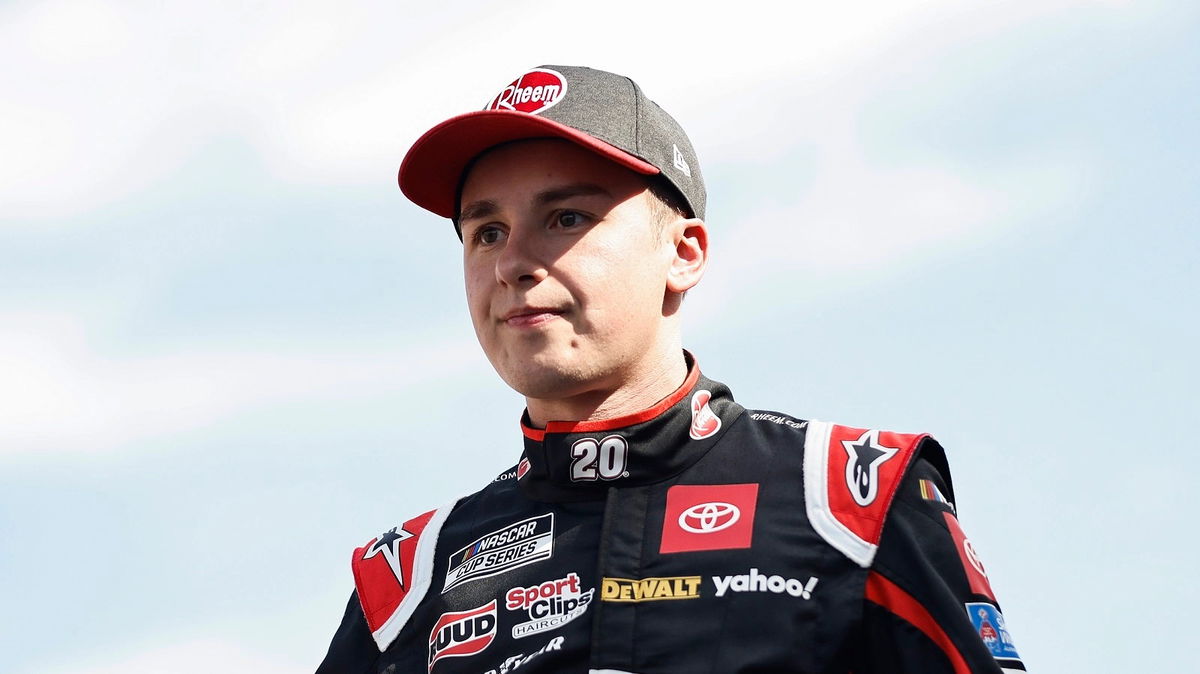
Imago
Joe Gibbs Racing driver Christopher Bell

Imago
Joe Gibbs Racing driver Christopher Bell
Christopher Bell’s Bristol win felt like one of those nights where everything finally clicked. At least on the surface. After weeks of near-misses and frustration, Bell and the No. 20 crew showed up under the lights at the Bass Pro Shops Night Race and put on a clinic. From nailing restarts to surviving Bristol’s trademark chaos, Bell looked every bit like a title contender as he held off Brad Keselowski in the closing laps.
Watch What’s Trending Now!
Fans were buzzing, social media was loving it, and for a moment, it seemed like Joe Gibbs Racing had finally turned the corner. But inside the No. 20 pit box, crew chief Adam Stevens was quick to remind everyone that a single win doesn’t erase the bigger challenges still ahead.
Adam Stevens pulls back the curtain on NASCAR’s harsh reality
Crew chief Adam Stevens didn’t sugarcoat it after Christopher Bell’s Bristol win. “I think you always need a win,” Stevens said, cutting straight to the heart of NASCAR’s playoff format. And he’s right! While consistency matters, drivers can be eliminated from the playoffs if they don’t rack up enough points. A single win, however, punches their ticket to the next round, making it one of the most valuable commodities in the sport. For Christopher Bell and the No. 20 team, Bristol was that much-needed insurance policy. But Stevens quickly shifted gears. “A win is a band-aid, but it doesn’t fix anything,” he admitted in a post-race conference.
Yes, a win feels great, but it doesn’t erase the underlying performance or strategy issues that haunt a team in the season. Well, Christopher Bell kicked off 2025 on fire, winning three of the first four races and looking like a Championship 4 lock. But after his All-Star Race win at North Wilkesboro, the momentum stalled, facing a long summer slump. His last top-five in a points-paying oval came at Kansas on May 11, leaving the No. 20 team searching for answers for months. What is more, ever since leading 105 laps in his March victory at Phoenix Raceway, Bell has only led a combined 113 laps in the last 24 races.
The frustration of months reached a boiling point after his seventh-place finish at Gateway. Christopher Bell infamously ranted on the radio: “We just f—— ran seventh with the best car on the track! Every f—— week, it’s the same s—. We’re the last car to pit road. I’m over it!” Wins provide breathing room, but they don’t magically improve pit stops, car speed, or race strategy. The teams need to work on them one race at a time.
“We’re all trying to be our best,” Stevens added, summing up the grind that is a NASCAR season. Every week is a test of preparation and resilience, and even the best teams can be outperformed more often than not, as Stevens put it, “If you win six or seven times, you’re still going to get your a– whooped 30 times.” That means finding ways to learn from those bad days and build forward momentum.
Bell’s Bristol triumph was a big moment. But Stevens’ comments are a reminder that it’s just one step on a much bigger journey. For the No. 20 team, the challenge now is turning that momentum into consistency, because in NASCAR, being good once isn’t enough.
Christopher Bell breaks down Bristol drama
Christopher Bell’s win at Bristol wasn’t just about speed. Rather, it was about composure under fire. Bell only led 12 laps of the 500-lap grind. But they were the ones that counted, including the last lap where Brad Keselowski tried one last-ditch move to take the win.
With four fresh tires compared to Bell’s outside tires, Keselowski closed the gap quickly and went for a textbook bump-and-run coming into Turn 3. “To be honest, I expected it,” Bell admitted after the race. “He ran me down from however long it was, three car lengths, four car lengths. Those last three laps, they were not my prettiest three laps I’ve run in my career, but it was good enough to get to the checkered flag first.”
Bell explained that knowing Keselowski’s situation actually helped him stay mentally locked in. “I knew he was going to be really aggressive, really hungry,” Bell said. “I knew his team had a bummer start to the year, but they’ve been performing well and been on the brink of Victory Lane and they were again tonight, so I knew he was going to throw everything at it.”
Even after the bump moved both cars up the track, Bell stayed calm and focused on not losing control. “I tried to stay under the tires and give me a little bit more room so whenever he hit me I could not spin out and crash, so yeah, it worked out,” he said. In a race where tire management, late-race cautions, and survival played such a big role, Bell’s ability to anticipate Keselowski’s move and keep his line made the difference. It was equal parts strategy, grit, and nerves of steel.








